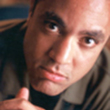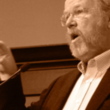The ascent of the A-word : assholism, the first sixty years
(Book)
427 NUNBE
1 available
Copies
| Location | Call Number | Status |
|---|---|---|
| Central - Adult Nonfiction | 427 NUNBE | Available |
Description
It first surfaced in the gripes of GIs during World War II and was captured early on by the typewriter of a young Norman Mailer. Within a generation it had become a basic notion of our everyday moral life, replacing older reproaches like lout and heel with a single inclusive category––a staple of country outlaw songs, Neil Simon plays, and Woody Allen movies. Feminists made it their stock rebuke for male insensitivity, the est movement used it for those who didn’t “get it,” and Dirty Harry applied it evenhandedly to both his officious superiors and the punks he manhandled.
The asshole has become a focus of collective fascination for us, just as the phony was for Holden Caulfield and the cad was for Anthony Trollope. From Donald Trump to Ann Coulter, from Mel Gibson to Anthony Weiner, from the reality TV prima donnas to the internet trolls and flamers, assholism has become the characteristic form of modern incivility, which implicitly expresses our deepest values about class, relationships, authenticity, and fairness. We have conflicting attitudes about the A-word––when a presidential candidate unwittingly uttered it on a live mic in 2000, it confirmed to some that he was a man of the people and to others that he was a boor. But considering how much the word does for us, and to us, it hasn’t gotten nearly the attention it deserves––at least until now.
More Details
Notes
Similar Titles From NoveList
Similar Authors From NoveList
Published Reviews
Booklist Review
Only an asshole would say this book is offensive. Sure, it uses the a-word a lot, but this is no cheap attempt to get laughs written by a B-list stand-up comic. The author, a linguist and language commentator (he contributes to NPR's Fresh Air), undertakes a serious examination of not just the word but also the concept surrounding it (known as assholism, a type of behavior with, it seems, pretty clear markers). Beginning with a look at the origin of the word itself, and its many foreign variations, Nunberg moves on to a discussion of the way language has incorporated asshole, not merely as an expletive but also as a sort of shorthand way of describing a particular type of person or behavior. Nunberg also looks at the way the reporters, who frequently must write about assholes, are forced to conceal the word behind asterisks or come up with substitutes (like a vulgar euphemism for a rectal aperture). An intelligent and wide-ranging study of linguistics, ideas, and social trends.--Pitt, David Copyright 2010 Booklist
Publisher's Weekly Review
Tellingly, Nunberg's study of the word "asshole" begins with the observation that half of the people profiled in Barbara Walter's 2011 "Ten Most Fascinating People" feature could be considered assholes. What follows is an engaging blend of linguistics, analysis, and social commentary that breaks down the important place the word "asshole" occupies in our language and culture. Nunberg begins by charting the rise of "asshole" from its origins as WWII barracks slang, to its popularization in post-war literature (as in Norman Mailer's The Naked and the Dead), to its eventual adoption as part of Standard English in the 1970s. Nunberg then describes the various roles that "asshole" plays in society, detailing the formation of pop culture "anti-assholes" like Dirty Harry, musing on it as a psychological reclassification of a "heel," and charting its relationship to similar concepts of narcissism, inauthenticity, and incivility. The last of these relationships proves most fruitful to Nunberg as he spends a good amount of the book outlining "assholism" in the political realm, both as a quality popular in political commentators and as an insult when linked with incivility and lobbed across the aisle. In the end, Nunberg makes an entertaining and thought-provoking case for the importance and power of a "dirty" word. (July) © Copyright PWxyz, LLC. All rights reserved.
Kirkus Book Review
Linguistic analysis and cultural criticism meet sociopolitical rant in this investigation of the word asshole and the modern phenomena of "assholism." What exactly does it mean to call someone an asshole? When did the epithet come to prominence as a social and now political invective? Who are some of the biggest assholes in the public eye today? These are just a few of the questions that linguist Nunberg (The Years of Talking Dangerously, 2009) explores in this often raucously funny account of what seems to be America's most popular insult. The author avoids many potential hazards, including an overly academic and pretentious tone or, conversely, an exceedingly snarky or droll satire. In other words, he avoids, by his own surmising, being an asshole himself, thereby rendering a skillful narrative. He looks carefully at both the political right and left with a plethora of examples from different mediums: blogs, radio talk shows, twitter feeds, TV news, reality television, films, literature and more. At the top of the asshole list--the arch-assholes--he places Donald Trump, Steve Jobs, Newt Gingrich, Ann Coulter and Rush Limbaugh, among others. Like other obscenities, asshole is closely linked to class tensions, and Nunberg is deft at examining the word in this and other contexts. Though the word ass as a term of derision seems to have ancient origins, Nunberg traces asshole as a derogative filled with anger and contempt to the slang of World War II soldiers. He examines its potential for symbolic violence, as well as the unique characteristics that distinguish it from other kinds of disparagement. The nearly universally understood qualities of an asshole--self-delusion, arrogance, thoughtlessness, pretentiousness, egotism and an exaggerated sense of entitlement--become a kind of catalyst for the author to enact a broad critique of contemporary public discourse and behavior. A witty and politically charged analysis of a potent obscenity in its modern and contemporary context.]] Copyright Kirkus Reviews, used with permission.
Booklist Reviews
Only an asshole would say this book is offensive. Sure, it uses the a-word a lot, but this is no cheap attempt to get laughs written by a B-list stand-up comic. The author, a linguist and language commentator (he contributes to NPR's Fresh Air), undertakes a serious examination of not just the word but also the concept surrounding it (known as assholism, a type of behavior with, it seems, pretty clear markers). Beginning with a look at the origin of the word itself, and its many foreign variations, Nunberg moves on to a discussion of the way language has incorporated asshole, not merely as an expletive but also as a sort of shorthand way of describing a particular type of person or behavior. Nunberg also looks at the way the reporters, who frequently must write about assholes, are forced to conceal the word behind asterisks or come up with substitutes (like a vulgar euphemism for a rectal aperture). An intelligent and wide-ranging study of linguistics, ideas, and social trends. Copyright 2012 Booklist Reviews.
Publishers Weekly Reviews
Tellingly, Nunberg's study of the word "asshole" begins with the observation that half of the people profiled in Barbara Walter's 2011 "Ten Most Fascinating People" feature could be considered assholes. What follows is an engaging blend of linguistics, analysis, and social commentary that breaks down the important place the word "asshole" occupies in our language and culture. Nunberg begins by charting the rise of "asshole" from its origins as WWII barracks slang, to its popularization in post-war literature (as in Norman Mailer's The Naked and the Dead), to its eventual adoption as part of Standard English in the 1970s. Nunberg then describes the various roles that "asshole" plays in society, detailing the formation of pop culture "anti-assholes" like Dirty Harry, musing on it as a psychological reclassification of a "heel," and charting its relationship to similar concepts of narcissism, inauthenticity, and incivility. The last of these relationships proves most fruitful to Nunberg as he spends a good amount of the book outlining "assholism" in the political realm, both as a quality popular in political commentators and as an insult when linked with incivility and lobbed across the aisle. In the end, Nunberg makes an entertaining and thought-provoking case for the importance and power of a "dirty" word. (July)
[Page ]. Copyright 2012 PWxyz LLCPW Annex Reviews
Tellingly, Nunberg's study of the word "asshole" begins with the observation that half of the people profiled in Barbara Walter's 2011 "Ten Most Fascinating People" feature could be considered assholes. What follows is an engaging blend of linguistics, analysis, and social commentary that breaks down the important place the word "asshole" occupies in our language and culture. Nunberg begins by charting the rise of "asshole" from its origins as WWII barracks slang, to its popularization in post-war literature (as in Norman Mailer's The Naked and the Dead), to its eventual adoption as part of Standard English in the 1970s. Nunberg then describes the various roles that "asshole" plays in society, detailing the formation of pop culture "anti-assholes" like Dirty Harry, musing on it as a psychological reclassification of a "heel," and charting its relationship to similar concepts of narcissism, inauthenticity, and incivility. The last of these relationships proves most fruitful to Nunberg as he spends a good amount of the book outlining "assholism" in the political realm, both as a quality popular in political commentators and as an insult when linked with incivility and lobbed across the aisle. In the end, Nunberg makes an entertaining and thought-provoking case for the importance and power of a "dirty" word. (July)
[Page ]. Copyright 2012 PWxyz LLCReviews from GoodReads
Citations
Nunberg, G. (2012). The ascent of the A-word: assholism, the first sixty years . PublicAffairs.
Chicago / Turabian - Author Date Citation, 17th Edition (style guide)Nunberg, Geoffrey, 1945-. 2012. The Ascent of the A-word: Assholism, the First Sixty Years. New York: PublicAffairs.
Chicago / Turabian - Humanities (Notes and Bibliography) Citation, 17th Edition (style guide)Nunberg, Geoffrey, 1945-. The Ascent of the A-word: Assholism, the First Sixty Years New York: PublicAffairs, 2012.
Harvard Citation (style guide)Nunberg, G. (2012). The ascent of the A-word: assholism, the first sixty years. New York: PublicAffairs.
MLA Citation, 9th Edition (style guide)Nunberg, Geoffrey. The Ascent of the A-word: Assholism, the First Sixty Years PublicAffairs, 2012.






























